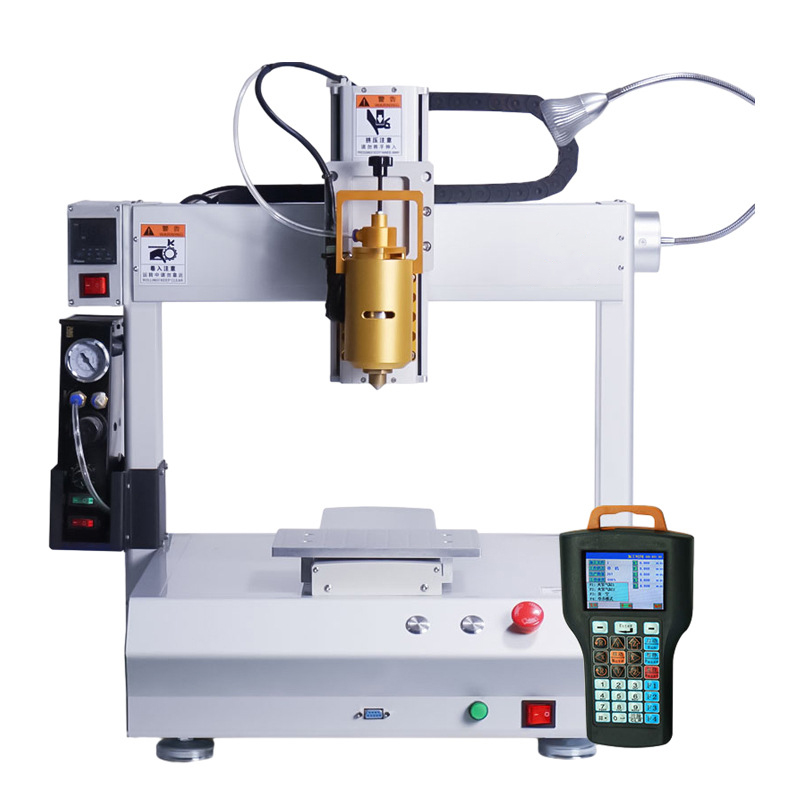Dispensing Machines: Precision Tools for Industrial Adhesive Applications
In the contemporary industrial landscape, dispensing machines have become indispensable tools, offering precise solutions for adhesive applications that enhance production efficiency and product quality. Let’s delve into the applications of dispensing machines in various industries and examine their advantages and disadvantages.
Applications of Dispensing Machines in Industry
A dispensing machine is an automated device used for the precise control and application of liquids, colloids, or adhesives onto workpiece surfaces. Their applications are diverse and span across various industries:
- Electronics Manufacturing: Dispensing machines are employed for adhesive bonding, encapsulation, and coating of electronic components, ensuring robust connections between circuit boards and components.
- Automotive Industry: In automobile manufacturing, dispensing machines are used for sealing, bonding, and lubricant application, enhancing the durability and performance of automotive components.
- Medical Device Manufacturing: During the assembly of medical devices, dispensing machines play a crucial role in precise assembly and adhesive application, meeting stringent hygiene and quality standards.
- Woodworking and Furniture Manufacturing: Dispensing machines are used for furniture assembly and wood bonding, ensuring the structural stability of products.
- Aerospace: The aerospace industry relies on dispensing machines for tasks like composite material bonding, sealant application, and lubrication to meet performance requirements in extreme environments.
Advantages:
- High Precision: Dispensing machines achieve exceptionally high liquid distribution precision, ensuring precise adhesive application every time.
- Automation: These machines are typically equipped with computer control systems, automating the liquid distribution process and thereby increasing production efficiency.
- Versatility: Dispensing machines are compatible with various liquid materials, including adhesives, paints, greases, waxes, and more, providing multifunctional adhesive solutions.
- Adjustability: Users can freely adjust adhesive application speed, thickness, and patterns to meet the requirements of different projects, offering flexibility in application.
- High Reliability: The stable design of dispensing machines ensures consistent coating quality, reducing material wastage and the need for rework.
Disadvantages:
- High Initial Investment: Dispensing machines often require a substantial initial investment, which can be challenging for small enterprises or startups.
- Need for Specialized Knowledge: Operating and maintaining dispensing machines necessitates specialized knowledge and training to ensure proper functionality.
- Not Suitable for All Materials: Dispensing machines may not be suitable for certain high-viscosity or specialized liquid materials, requiring process adjustments or alternative adhesive methods.
To address these disadvantages, businesses can consider options such as leasing dispensing machines to mitigate the initial cost burden, selecting cost-effective machine models that meet their specific needs, providing employee training to enhance operational and maintenance skills, and staying updated on advancements in dispensing technology to identify machines and materials that better suit their requirements.
In conclusion, despite these challenges, dispensing machines remain invaluable assets in modern industry, contributing to improved product quality and production efficiency.
Post time: Sep-18-2023


